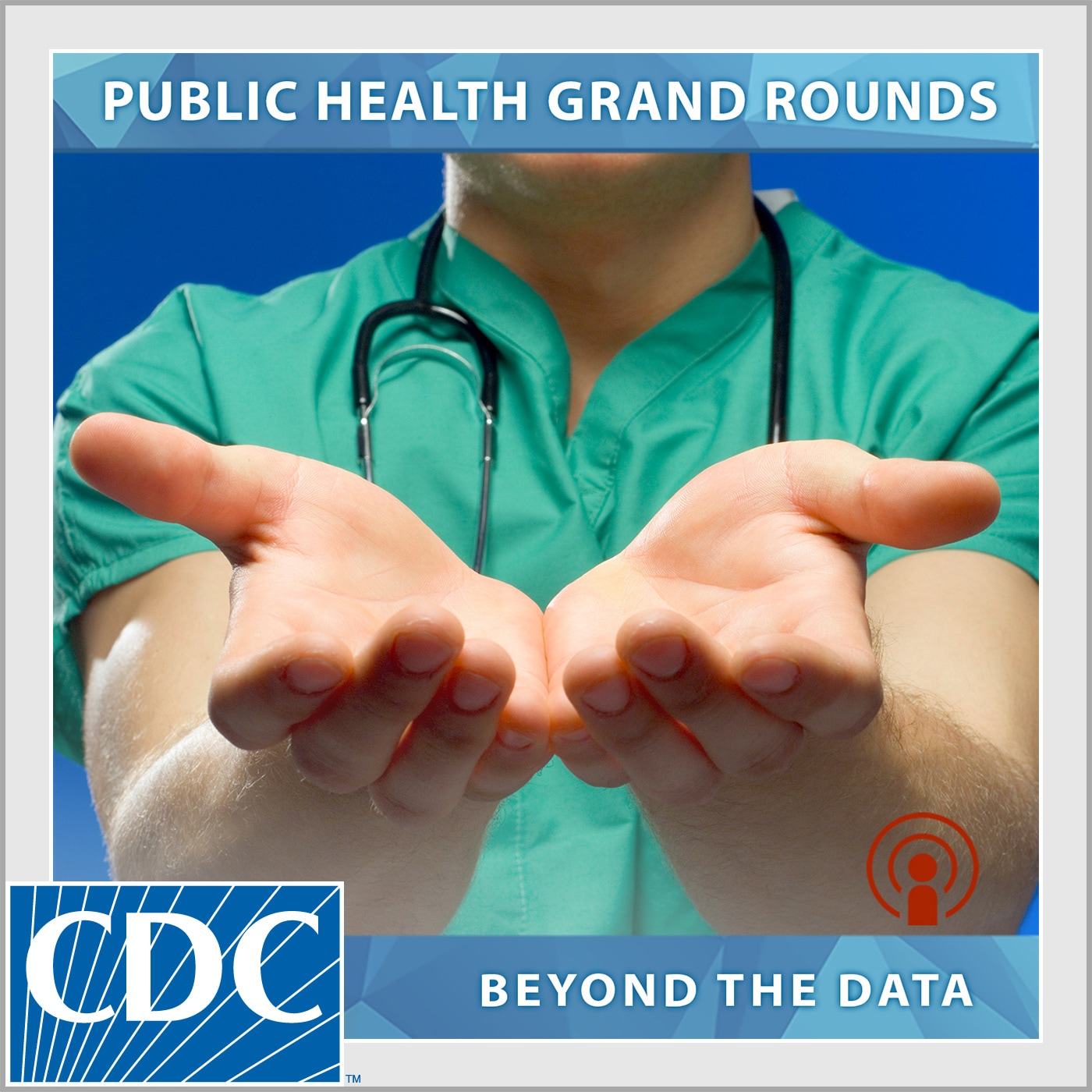Listen to our new Podcast & watch our related Encore Presentation, the Emerging Role of Pathogen Genomics in Public Health
Originally presented on . Encore presentation on .
The January session of Grand Rounds, “The Emerging Role of Pathogen Genomics in Health” was viewed in 7 foreign countries, 43 states, the District of Columbia, and the US Virgin Islands.
The Advanced Molecular Detection (AMD) Program, established by Congress in 2013, has led the adaptation and deployment of novel laboratory technologies, namely next-generation sequencing and bioinformatics, in the US public health system. AMD technologies are now in use across the range of infectious diseases of public health importance, such as bacterial foodborne illness, tuberculosis, influenza, malaria and Legionnaires’ disease. This session of Public Health Grand Rounds will address the rapid advances in AMD, how these technologies are being applied in public health, and their future uses.
A Glossary for Advanced Molecular Detection and Pathogen Genomics word icon[DOC – 17 KB]
SPHERES is a new CDC-led national genomics consortium to help coordinate SARS-CoV-2 sequencing in labs across the US. Listen to our new Beyond the Data podcast and find out how labs can monitor changes in the virus and provide diagnostic and potential treatment information.
Besides interest in public health, are there other incentives for tech savvy young people to work at a state health department, rather than for a big tech company or startup?
Applicants for the APHL-CDC Bioinformatics fellowship consider this very question and many of them are choosing to work at state health departments. Fellows consistently cite the ability to have a large and positive impact as a major factor in their decision to do a fellowship in public health. In addition, they are also attracted to the variety of work opportunities that a career in state or local public health affords.
Can you explain how the relatedness of WGS results that may identify outbreak-related cases is balanced with “background noise” of expected (for example Salmonella cases). It seems that without knowing the background, it may be difficult to determine causality.
By analyzing the reported patterns in national databases–in particular, PulseNet has more than 120,000 entries of Salmonella sequence data–many outbreaks are already being investigated with WGS. More importantly, public health epidemiologists and laboratory scientists never rely solely on one piece of data, such as the WGS, when investigating an outbreak, and typically make use of a large variety of data. The Office of Advanced Molecular Detection (AMD) recently released a video, “Transforming Disease Detection,” which describes how WGS informs outbreak detection.
Antibiotic resistance may be the next enduring, potent, even lethal PH problem we face. What can you say about policies that might be needed to manage this on the individual and hospital level to identify those not yet infected with a resistant organism?
AMD technologies play an important role in tracking and investigating the emergence of antimicrobial resistance, as well as informing policies for reducing their transmission. However, responding to antimicrobial resistance involves many disciplines within public health that go well beyond the scope of AMD. For more information, please visit www.cdc.gov/drugresistance/.
- Duncan MacCannell, PhD
- Chief Science Officer
The National Center for Emerging and Zoonotic Infectious Diseases, CDC
"Introduction to Advanced Molecular Detection and Pathogen Genomics"
- Heather Carleton, PhD
- Microbologist
Division of Foodborne, Waterborne and Environmental Diseases The National Center for Emerging and Zoonotic Infectious Diseases, CDC
"Applications of Next-Generation Sequencing to Foodborne Disease Prevention"
- Lauren Turner, PhD
- Foodborne and Advanced Pathogen Characterization Lead Scientist
Division of Consolidated Laboratory Services, Virginia Department of General Services
"State Level AMD Applications Across the Infectious Disease Spectrum"
- Gregory Armstrong, MD
- Director
Office of Advanced Molecular Detection The National Center for Emerging and Zoonotic Infectious Diseases, CDC
"Where Does Pathogen Genomics Go from Here?"
Get notified about the latest updates from Public Health Grand Rounds right in your inbox by setting up an alert today!
Get notified about the latest updates from Public Health Grand Rounds right in your inbox by setting up an alert today!Sign Up
Get notified about the latest updates from Public Health Grand Rounds right in your inbox by setting up an alert today!
- Presentation Slide Deck pdf icon[PDF - 9 MB]
- A Glossary for Advanced Molecular Detection and Pathogen Genomics word icon[DOC - 19 KB]
- JAMA Networkexternal icon
- New England Journal of Medicine special report, Pathogen Genomics in Public Health Transforming Disease Detection videoexternal icon
- CDC’s Advanced Molecular Detection (AMD) website
This session is available for Continuing Education (CE). Register here using the course information below.
CDC Course Code: PHGR10
CPE UAN: JA4008229-0000-20-084-H04-P
For more information, see Grand Rounds Continuing Education.

